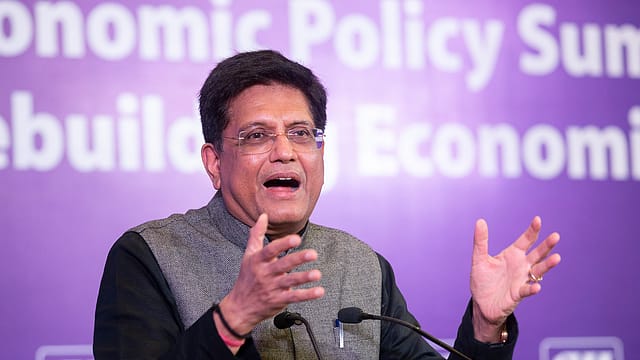Major outcomes elude WTO meet; India says farmers, fishermen protected
ADVERTISEMENT

The 13th Ministerial Conference (MC13) of the World Trade Organisation (WTO), which ended in Abu Dhabi on March 2, failed to achieve any major results. Consensus eluded on all key agenda items including a permanent solution to the issue of government public stockholding for food security purposes and subsidies for small-scale fishing. However, WTO members agreed to extend the current moratorium on customs duties on electronic transmissions for two more years.
Union Commerce Minister Piyush Goyal said India has protected the interest of its farmers and fishermen by not agreeing to the proposals that were seen as harming their interests.
The MC13, scheduled for February 26-29, got extended by more than a day after the members made some last-ditch efforts to bring consensus on as many topics as possible.
A WTO statement said that MC13 saw several ministerial decisions, including renewing the commitment to have a fully and well-functioning dispute settlement system by 2024 and to improve the use of the special and differential treatment (S&DT) provisions for developing and least developed countries (LDCs). They also agreed to continue negotiations in all areas where convergence was elusive at MC13, it stated.
On services domestic regulation, WTO said the ministerial saw the entry into force of new disciplines that are expected to lower trade costs by over $125 billion worldwide. These disciplines seek to mitigate unintended trade-restrictive effects of measures relating to licensing requirements and procedures, qualification requirements and procedures and technical standards.
"In the second wave of fisheries subsidies negotiations, you narrowed some outstanding gaps, but several more remain," said Ngozi Okonjo-Iweala, Director General, of WTO. "While I had hoped that we could finish these negotiations in Abu Dhabi, you have prepared the ground for its conclusion at the next Ministerial Conference, if not earlier. The livelihoods of 260 million people who depend directly or indirectly on marine fisheries are at stake", she stated.
On agriculture, despite the intense negotiations during MC13, divergences remained on public stockholding (PSH) for food security purposes and in respect of timelines, expected outcomes and the scope of the flexibility to be provided to food imports by the most vulnerable countries from export restrictions.
The Ministerial Conference brought together nearly 4,000 ministers, senior trade officials and other delegates from the WTO's 164 members and observers as well as representatives from civil society, business and the global media.